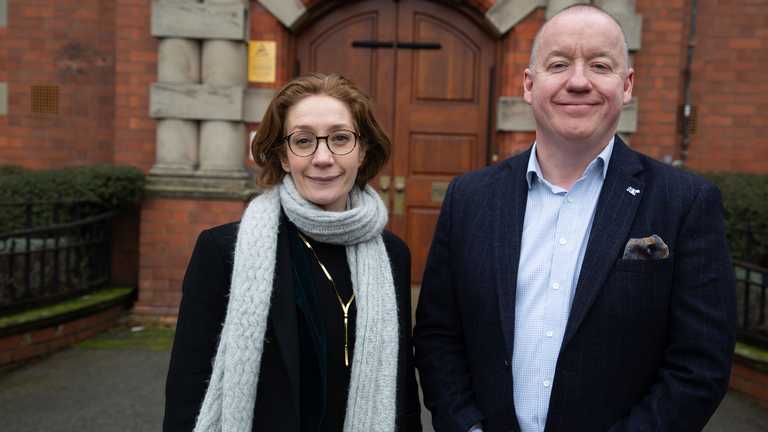

Loading search...
Loading search...
Loading site search...
Loading site search...
Loading site search...
Loading...
Loading site search...
Loading site search...
Posted 25 November 2024

A rural crime expert from Harper Adams University has discussed the impact of agricultural fraud on farmers on BBC One’s Countryfile.
The programme was investigating the issue as part of the wider BBC Scam Safe week and spoke to two farmers about how scams had affected them – as well as to Harper Adams criminologist Dr Kreseda Smith about her research into how such crimes affect their victims.
Presenter Tom Heap met with farmers Alan Steven, from St Andrews in Fife, and Rob Alderson, from Ludlow in Shropshire.
Alan was the victim of invoice fraud, where criminals hacked his emails to tamper with genuine invoices. Adding their bank details, the fraudsters put in two invoices, for £12,000 and £16,000 – and while Alan received some of the money back, he still lost £16,000.
Meanwhile Rob found himself caught out by a Facebook page which was offering a machine he hoped could help him during that year’s busy harvest.
The machine appeared to be in Scotland – which was too far for Rob to travel during harvest – but the page and the machine looked convincing enough for Rob to pay more than £6,000 – at which point the seller vanished.
Rob eventually got his money back, but both he and Alan described how affecting it had been for them to be targeted by the criminals.
The programme set out how around £50 million was lost to invoice scammers last year – and highlighted a recent investigation by TSB, which discovered at least one in three Facebook Marketplace listings could be fraudulent, costing those affected almost £60 million.
To find out how these various scams can affect those targeted, Tom visited Harper Adams to speak with Dr Smith. She set out her research into the issue – and how serious the impact of these crimes can be.
She said: "Research that I've done in the past with farmers, looking at how crime affects their mental health, has indicated that this can range anything from anxiety, paranoia, lack of sleep, right through to the extremes of suicidal behaviour, which is a horrendous thought.
“We hear it a lot - when victims of fraud and scams say things like ‘how could I be so stupid to fall for that?’”
Because of this, she added: “Sadly, fraud is probably one of those crimes that is an extreme example of under-reporting.
“It's important not to think that you're an idiot for falling for this.
“Criminals are clever. Criminals have a good idea of the agricultural calendar - so they know harvest time is a great time to try.
“Criminals are very quick to respond to changes in the environment.
“The recent Budget is very front and centre of farmers’ minds at the moment, and I think criminals are aware of that.
"And I think this whole issue around inheritance tax may raise the opportunity for criminals to perpetrate some kind of scam, whether it's a way of helping farmers to reduce their liabilities, or some other form. That is a potential.
“This just shows how flexible criminals are – so they can work very quickly to create a new scam.”
Watch the piece again in full on BBC iPlayer here.
Dr Smith is conducting current research further exploring the impact of agricultural crime and who farmers believe is committing these offences. Farmers affected by crime can complete the survey at: harper.ac.uk/ruralcrime24










We use cookies to ensure that we give you the best experience on our website. If you continue without changing your settings, we'll assume that you are happy to receive all cookies on the website. However, you can change your cookie settings at any time.